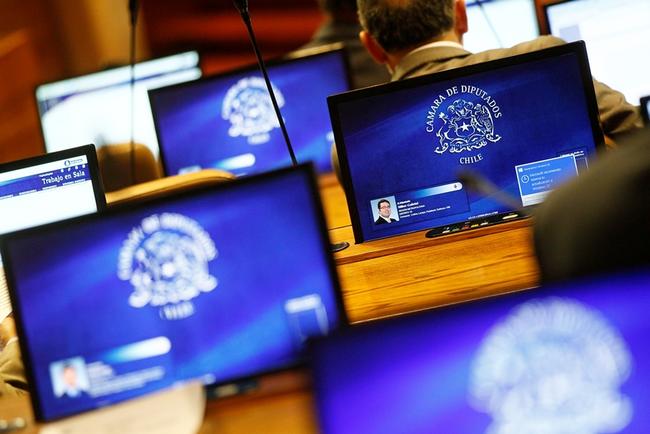- ImpactWe help parliaments to become greener and to implement the Paris agreement.We support democracy by strengthening parliamentsWe work to increase women’s representation in parliament and empower women MPs.We defend the human rights of parliamentarians and help them uphold the rights of all.We help parliaments fight terrorism, cyber warfare and the proliferation of weapons of mass destruction.We encourage youth participation in parliaments and empower young MPs.We support parliaments in implementing the SDGs with a particular focus on health and climate change.
- ParliamentsNearly every country in the world has some form of parliament. Parliamentary systems fall into two categories: bicameral and unicameral. Out of 190 national parliaments in the world, 78 are bicameral (156 chambers) and 112 are unicameral, making a total of 268 chambers of parliament with some 44,000 members of parliament. IPU membership is made up of 180 national parliaments
Find a national parliament
We help strengthen parliaments to make them more representative and effective. - EventsVirtual eventThe International Court of Justice (ICJ) was constituted under the United Nations Charter to help nations settle disputes peacefully in accordance with international law.
- Knowledge
Discover the IPU's resources
Our library of essential resources for parliamentsGlobal data for and about national parliamentsLatest data and reports about women in parliamentResolutions, declarations and outcomes adopted by IPU MembersRecent innovations in the way parliaments workThe latest climate change legislation from the London School of Economics' database
Centre for Innovation in Parliament
The Centre for Innovation in Parliament (CIP) harnesses the potential for innovation across parliaments by bringing them together, supporting collaboration on solutions and sharing knowledge with the wider parliamentary community.
New technologies are having a major impact on the operational environment and cultural landscape of parliaments. A parliament that harnesses the power of new digital tools can now connect with those it represents in ways that were hard to imagine just a few years ago. The internal systems within parliaments are stronger and the processes they use are being transformed. Social networks and open data are important tools, allowing citizens to engage more effectively with members and parliaments.
The Centre was publicly launched at the World e-Parliament Conference in December 2018 with the support of a core group of parliaments: Brazil, Chile, Portugal, Zambia, and the European Parliament. It provides a platform for parliaments to develop and share good practices in digital transformation strategies, and practical methods for building capacity in areas such as:
- strategic planning of digital tools and services;
- parliamentary openness, open standards and open data;
- citizen engagement in the work of parliament;
- internet and social media;
- electronic document and records management; and
- digital library and research services.
As well as the day-to-day work of the hubs, CIP publishes a quarterly Innovation Tracker, which brings you news about innovative projects from parliaments.
How the Centre works
The Centre is composed of a Secretariat, managed by the IPU and parliamentary hubs, managed by host parliaments which other parliaments can join. CIP is overseen by a Steering Committee that provides strategic advice. For organizations wanting to get involved, CIP offers four levels of partnership to parliaments, parliamentary strengthening organizations, donors and other relevant organizations:
- Keystone partners host hubs within the Centre and/or provide core funding to the Centre. Keystone Partners are directly involved in the strategic governance and direction of the Centre through membership of the Steering Committee.
- Funding partners contribute financial resources to the Centre but take a more background role in terms of governance.
- Supporting partners provide in-kind support, for example, secondment of staff to participate in the work of the Centre for a period of time, on a per-project basis or for short-term assignments, such as for inter-parliamentary support.
- Project partners participate in individual projects within the Centre.
About our Hubs
The Centre’s key activities are carried out in regional and thematic hubs, located within host parliaments. Regional hubs bring together parliaments from the same region or sub-region, and normally address a range of issues of common interest. Thematic hubs bring together parliaments from different regions that share a common interest in working on a specific issue, such as Information and Communication Technology (ICT) governance or open data. Hubs act with a high degree of autonomy within the Centre’s network.
- Public engagement hub
- ICT Governance thematic hub
- Open Data thematic hub
- Transparency hub
- Caribbean regional hub
- East African regional hub
- Hispanophone hub
- Southern Africa regional hub
- Pacific regional hub
Supporting research and sharing good practice
In addition to the work of the hubs, CIP also undertakes research to understand what is happening in parliaments from the perspective of innovation and digital technologies. CIP publishes the landmark World e-Parliament Report and hosts the biannual World e-Parliament Conference, as well as undertaking one-off research projects and producing good practice guides.
Contact
For more information, contact: [email protected]

© Chamber of Deputies of Chile




